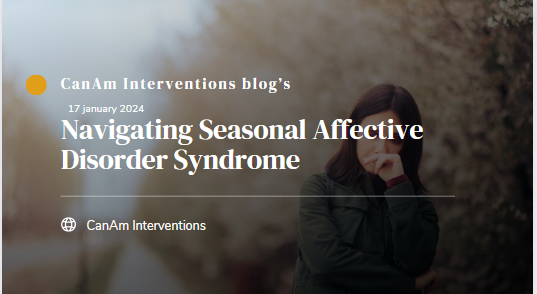Nearly everyone hides their feelings from time to time. There are many scenarios that this can happen such as, your partner reveals something at a family gathering you asked them to keep private. You’re upset and embarrassed, but you pretend everything’s fine until you get home, where you can talk alone. You don’t want to argue in front of your extended family and make the conflict worse.Occasional emotional suppression generally won’t cause problems if you eventually work through them in healthy, productive ways.It can become an issue, however, if it becomes a pattern and affects your ability to communicate authentically.

Why people hide feelings:
To avoid showing ‘weakness’
Showing emotion can put you in a vulnerable place, and it’s normal to want to avoid exposing vulnerabilities to others.You might worry expressing certain emotions will lead others to judge you and believe you can’t manage your feelings. As a result, you hide your sadness, fear, frustration, and other so-called negative emotions.You could also have some concerns around others using these feelings against you, especially if that’s happened to you before.
To avoid getting hurt
People often hide emotions to protect their relationships. When someone you care about does something upsetting, you might choose to hide your annoyance.Yes, their actions bothered you. But if they react negatively when you tell them how you feel, you could end up triggering an even more painful conflict. So, instead, you choose to avoid conflict entirely.This desire to avoid pain often stems from an underlying lack of trust in yourself and others.If people have manipulated your emotions in the past, you might fear trusting someone new with your feelings. You might also lack faith in your own ability to handle conflict in a positive and productive way.
Lack of confidence
If you grow up receiving the message that your opinions and feelings don’t matter, you’ll likely learn to hide your feelings from an early age.This often happens when parents and caregivers judge or criticize you for expressing your emotions. This judgment isn’t limited to negative emotions, either.Some restrictive caregivers reprimand children for any outburst, negative or positive. Eventually, you may no longer feel safe expressingyour opinions and feelings, so you hide them to prevent further criticism.Caregivers who mask their own emotions can also reinforce the idea that you should do the same.
How it affects you
Masking emotions can have some verysignificant effects on physical and emotional health. We can all be guilty of masking and bottling our emotions. It is common for us to avoid these emotions in attempt to minimize a difficult situation. But in doing this we bring on issues that are certain to arise in our daily life. Anger outbursts, anxiety and paranoia are just some of the issues that WILL HAPPEN if we can’t learn how to manage our emotions and to be open about them. This will be helpful for yourself as well as the people that are close to you.
Disrupted communication.
By hiding your emotions, you prevent clear communication with the people in your life. This lack of communication makes it tough to navigate conflict.When you can’t work through problems, they’ll probably keep happening. You might eventually become angry and resentful, and these feelings could trigger the conflict you wanted to avoid. You could also start avoiding people who provoke certain emotions, possibly losing relationships you value.Emotional suppression can become so much of a habit that it begins to happen unconsciously, so you might also notice you begin to lose touch with your own feelings.
Emotion buildup
Pretending you don’t have certain feelings might help you avoid expressing them, but it doesn’t make them go away. In fact,holding back your emotions can intensify them. A classic example of this involves anger. Many people believe it’s better to tamp down anger than express it.But suppressing your anger means you don’t address it, so it continues to build and seethe under your mask of calm. Eventually, when you can’t hold it back any longer, you might blow up — and not necessarily at the person who made you mad.
Relationship strain
You might think you can hide your feelings fairly well, but people who know you can usually recognize when something’s bothering you.Insisting “I’m fine” and “Nothing’s wrong” can confuse and frustrate them when the opposite is clearly true. If they know you aren’t telling the truth, they might feel hurt by your lack of trust and begin losing trust in you.If they do believe you, they might lose confidence in their ability to understand you or decide they don’t know you as well as they thought. Eventually, they could begin to question the strength of the relationship.In either scenario, the relationship you wanted to protect still ends up being damaged.
The solution
Dealing with emotions can be very complicated and overwhelming. It is not always easy to be vulnerable about how we feel with another person. It takes a lot of trust to make that leap not knowing where we’ll land. That leap of faith will be the most difficult step but is absolutely necessary to achieve the emotional regulation that you need to achieve to help you lead a healthy lifestyle. More often than not professional help is required. It is a very complicated condition to understand for most people who are inexperienced or un-educated in this particular matter. When that help is required, Can-Am Interventions is ready to help. We have worked with individuals for over 30 years in situations such as this to help our clients achieve the skills and knowledge required for overcoming these types of overwhelming conditions. The help and answers you require are one phone call away.
E: patti.pike@canaminterventions.com W: www.canaminterventions.com
1-800-638-1812 Toll Free Internationally
415-827-3725 Cell /Text 415-578-2875 Office